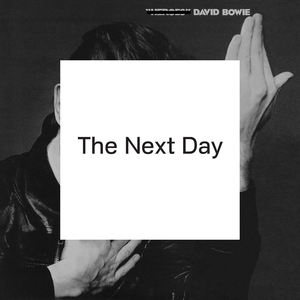Monday, 4 March 2013
Genre Rock
Label Columbia Records
Producers Tony Visconti

When David Bowie revealed Where Are We Now?, the first single from his long awaited comeback to music, the rush to acclaim was enthusiastic but at the same time almost passively judgemental. As delicately refined as the ballad was, it bore the elegiac sound of a weary elder statesman of rock and roll. The reaction to this single can be summed up as equal measures of jubilation that one of the most revered musical icons of the last fifty years had returned, of praise for a lovely song in its own right, and of bittersweetness.
After health problems drove Bowie, now in his sixties, out of the touring lifestyle and into a decade long hiatus, the conclusion was that we were witnessing the plateau of a new more sedate era in his career. Pundits envisaged a gracefully nostalgic Bowie without the youthful flair and audacity, but with the measured tastefulness and complexity of a true rock legend. Fortunately this was all misdirection.
The listener realises this instantly upon listening to the opening and title track of The Next Day. This is a true comeback song; punchy, to the point and sung with real venom as Bowie literally growls "Here I am, not quite dying". Musically it elicits memories of Let's Dance era 1980s Bowie, at what some would say was the height of his powers.
Releasing a new album at all was a big enough shock, but no one could have expected a David Bowie with this much energy and power. Comparing this to his most recent albums a decade ago one would swear they were listening to a man at least ten years younger. For the first time in decades his voice has the angsty edge of youth, such is the range on some songs that you can scarcely believe you're listening to someone approaching seventy.
The best example is the sublime Valentine's Day, easily the most addictive song on the album. Everything from the hypnotic guitar licks to the almost synthetic sounding vocals just screams Ziggy Stardust, and suddenly it's as if you've gone back forty years and started listening to twenty year old Bowie. The song itself is an instant classic, and would be a surefire bet for a hit single if not for it's controversial subject matter (hint: it has nothing to do with flowers and chocolate).
But these throwbacks are no mere rehash of the greatest hits; The Next Day is imbued with a sound all its own, an inarguably classic style refreshed with flashes of modern sensibility. Back in his prime David Bowie was known as the chameleon of rock and roll, and it's the return to this outlook that sets his newest album apart from the rest of his musical peers today.
Contrast the ballad of his lead single with the stinging diatribe of The Stars (Are Out Tonight), a frantic and paranoid assault on the cult of celebrity that raises many staple Bowie themes from androgyny to lack of identity. Laced with complex instrumentalisation and tremulous vocals, this is probably the most "Bowie" song he's recorded in a long time.
Contrast this to the stadium busting anthem of (You Will) Set the World On Fire, or the spaced out pop of Dancing Out in Space, or the pure weirdness of How Does the Grass Grow? True to form Bowie has crafted an album where every single track sounds completely different, and yet works together as a whole. The only thing that unites these disparate sounds is that each is incredibly listenable; Bowie has clearly spent much of his hiatus honing these melodies to the point where every single one is utterly unique and very memorable.
Without doubt this is one of those albums that demands and rewards multiple listens. These are songs of great depth, lyrically thought provoking, and beautifully strange. Just as important, each song is nearly perfectly formed, short and spiky never overstaying it's welcome, and expertly produced. Over the course of a few play throughs the record grows from a collection of decent songs with three or four great tunes into an absolute classic with no filler.
Ultimately The Next Day is a far better album than anyone could possibly have expected. A revitalised David Bowie has tapped into what made him great before, and delivered an LP that not only puts all his most recent albums in the shade, but remarkably stands up on a par with his very finest work. Reviews have been racing one another to declare this the greatest comeback in rock and roll history, and it would be hard to argue except that on this basis it's hard to believe he ever left. The Ephemeric has no hesitation in awarding this our first five star review in four years.
Must Listen:
Valentine's Day
The Stars (Are Out Tonight)
Where Are We Now?
(You Will) Set the World On Fire




